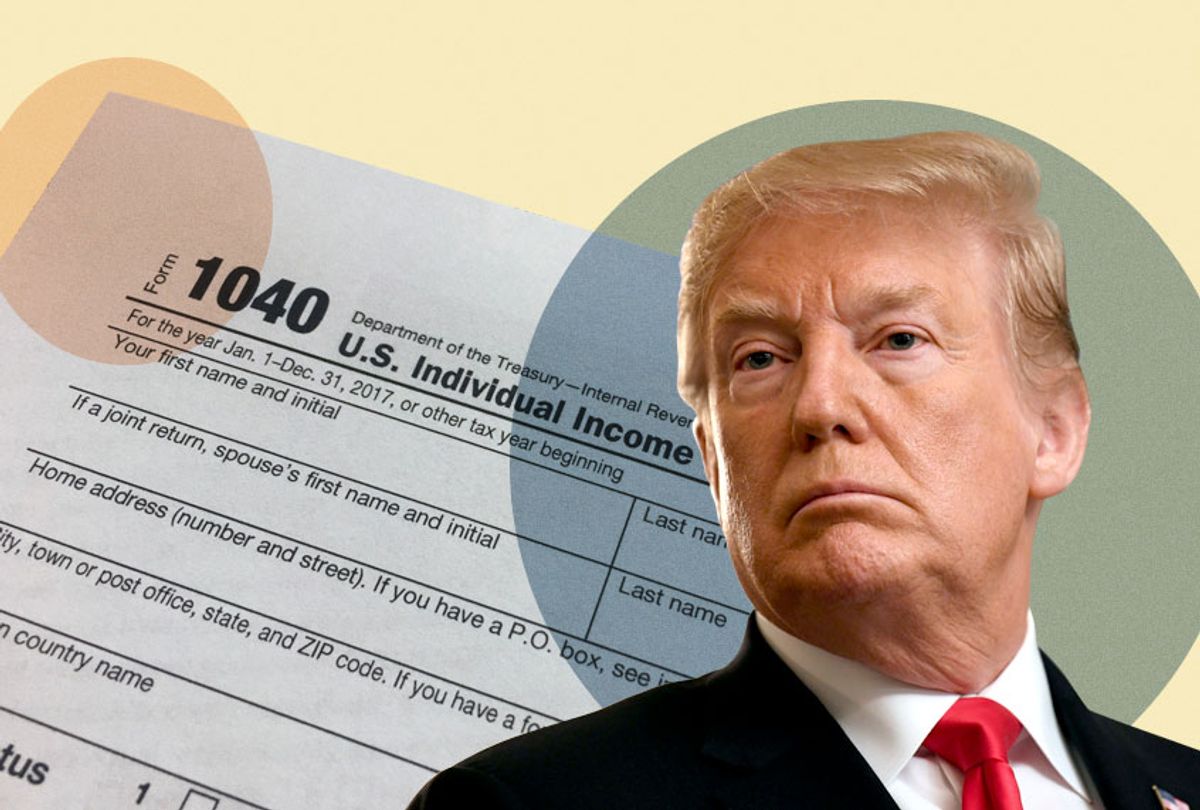The White House said President Donald Trump will not hand over copies of his tax returns to lawmakers despite the Tuesday deadline facing the Treasury Department and Internal Revenue Service, setting the stage for what is likely to be a lengthy legal battle between the executive and legislative branches of government.
"As I understand it, the president's pretty clear: Once he's out of audit, he'll think about doing it. Bhe’s not inclined to do so at this time," White House spokesman Hogan Gidley told Fox News in a Tuesday interview.
Rep. Richard Neal, D-Mass., the chairman of the House Ways and Means Committee, requested six years of Trump's personal and business returns earlier this month. The Massachusetts Democrat provided the Trump administration with a new deadline of 5 p.m. ET on Tuesday to hand over the documents after the White House refused to provide the documents by the chairman's original April 10 deadline. Earlier this month, Neal informed IRS Commissioner Charles Rettig in a letter that failure to comply with the request would be viewed as a denial.
The IRS and the Treasury Department, which oversees the tax agency, have suggested they will not comply with a 1924 law that allows the chairmen of the three tax committees in Congress to ask the Treasury to turn over any taxpayer information —even the president's. Neal, in his letter, said that law is "unambiguous and raises no complicated legal issues."
Trump, for his part, said earlier this month that "there is no law" requiring him to turn over his tax returns.
Democrats have been on a hunt to obtain Trump's tax returns since he bucked decades of tradition when he refused to release them during the 2016 election cycle.
Although not required by law, every major party presidential nominee since the 1970s has chosen to publicly release his or her tax returns except for Gerald Ford, who only released a summary. Financial disclosures can help paint a fuller picture of a candidate's business positions and interests by providing information about financial dealings, such as investments, donations, business relationships, assets and possible conflicts of interests.
Trump, who pledged to release his tax returns as a presidential candidate, appeared to become skittish about handing over the documents in February 2016. Since then, he has argued he cannot disclose his returns, because he is being audited by the IRS — even though an audit does not prevent a taxpayer from releasing his or her own tax documents.
Additionally, the president's former lawyer and "fixer" Michael Cohen told a congressional panel in February that he does not believe Trump's taxes are under audit. Cohen said Trump expressed concern that releasing his returns would lead to an audit and IRS tax penalties.
Acting White House Chief of Staff Mick Mulvaney proclaimed earlier this month that Democrats will "never" see Trump's tax returns, while Treasury Secretary Steven Mnuchin described the request for copies of the president's returns as "unprecedented."
"The legal implications of the request could affect protections for all Americans against politically-motivated disclosures of personal tax information, regardless of which party is in power," Mnuchin wrote in a letter to Neal.
Democrats requested Trump's returns as part of their wide-ranging investigations into potential conflicts of interests posed by his business deadlings. Republicans, meanwhile, have criticized the request as merely a pretext for a political attack.
Rep. Kevin Brady, R-Texas, the top Republican on the Ways and Means panel, urged Mnuchin to reject Neal's request, calling it an "abuse" of authority from Democrats on the committee.
"Weaponizing our nation's tax code by targeting political foes sets a dangerous precedent and weakens Americans privacy right," the Texas Republican wrote in a letter to Mnuchin. "All Americans have a fundamental right to the privacy of the personal information found in their tax returns."
If the request for Trump's tax returns is denied, Neal could issue a subpoena for the documents, and if necessary, sue in federal court to enforce the subpoena. It would be one of several subpoenas from congressional Democrats conducting oversight of the Trump administration. House Judiciary Committee Chairman Jerry Nadler, D-N.Y., subpoenaed the Justice Department for the unredacted version of special counsel Robert Mueller's report on Russian interference in the 2016 presidential election and the president's alleged efforts to obstruct the probe.



Shares